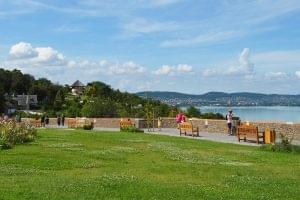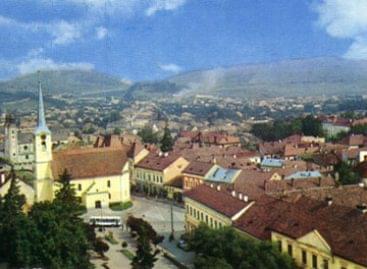Lake Balaton is changing: it was frozen for eight years, now it is experiencing record temperatures
Eight years ago, Lake Balaton froze completely due to the prolonged cold, while ice was also present on the Tisza and Danube. In contrast, this January temperatures are 15-18 degrees, which raises the question for many: will we be able to go to the beach at the Hungarian sea in winter in a few years? – asks the HelloVidék article.
Record heat in January

In recent days, heat records have been broken in Hungary. On January 28, 19.9 degrees were measured in Nagyatád, which was a new daily high temperature. Unusually mild weather also prevailed in the settlements on the shore of Lake Balaton, with thermometers showing 17-18 degrees. According to meteorological data, this trend is becoming more frequent, and significant warming is also being experienced in the winter months.
Memorable Balaton Crossing in 2017
Exactly eight years ago, on January 28, 2017, several thousand people crossed the frozen ice of Lake Balaton over the 5.2-kilometer stretch between Badacsony and Fonyód. Skaters, hikers and ice surfers also came to the event, and the spectacle was even reported in foreign news. However, such natural phenomena are becoming increasingly rare, and experts say it is even less likely that Lake Balaton will freeze permanently in the coming decades.
According to research by the HUN-REN Balaton Limnological Research Institute (BLKI), the lake is continuously warming. Its western part shows a temperature increase mainly in spring and summer, while its eastern part shows a temperature increase more in autumn and winter. Based on current trends, the water temperature of Lake Balaton may increase by another 0.5-0.7°C per decade in the next 10-20 years. In addition, the construction of the lake also contributes to warming, which can cause significant ecological changes.
Tourism and ecological challenges
The warming of the waters of Lake Balaton not only makes former winter sports, such as ice sailing and skating, impossible, but also has a significant impact on wildlife. Warmer water creates favorable conditions for the appearance of non-native, subtropical and tropical species, which can displace native organisms.
Although the warming can be expected to lead to a longer summer tourist season, the long-term effects pose serious environmental and economic challenges. According to experts, the sustainable management and protection of Lake Balaton will be of paramount importance in the coming years, so that we can adapt to changing climate conditions and maintain the ecological balance of the lake.
Related news
The Székely counties will present themselves with a joint stand at the 48th Travel Exhibition
🎧 Hallgasd a cikket: Lejátszás Szünet Folytatás Leállítás Nyelv: Auto…
Read more >The Bubi pilot period continues: you can still test Mobi points with bikes until the beginning of March
🎧 Hallgasd a cikket: Lejátszás Szünet Folytatás Leállítás Nyelv: Auto…
Read more >NGM: the government is extending the 5+1-point catering industry action plan to include pastry shops
🎧 Hallgasd a cikket: Lejátszás Szünet Folytatás Leállítás Nyelv: Auto…
Read more >Related news
Hétéves növekedési stratégiát jelentett be az Auchan
🎧 Hallgasd a cikket: Lejátszás Szünet Folytatás Leállítás Nyelv: Auto…
Read more >(HU) METRO Gasztro Fesztivál a SIRHA Budapesten – Élmény, inspiráció és valódi megoldások a HoReCa-szakmának
🎧 Hallgasd a cikket: Lejátszás Szünet Folytatás Leállítás Nyelv: Auto…
Read more >









